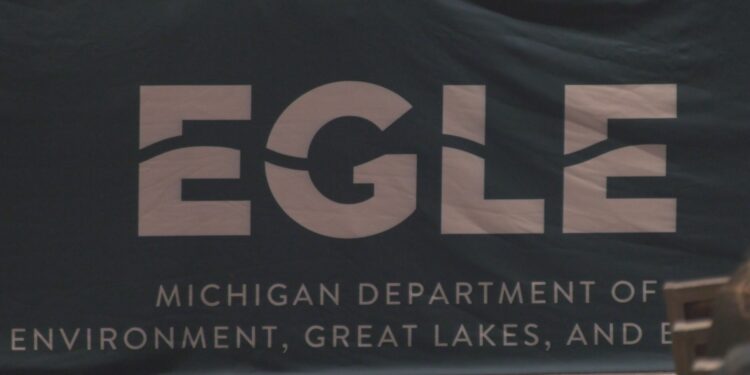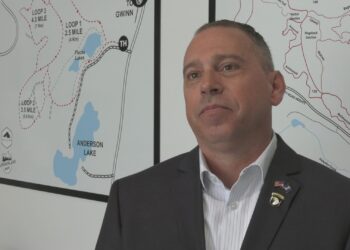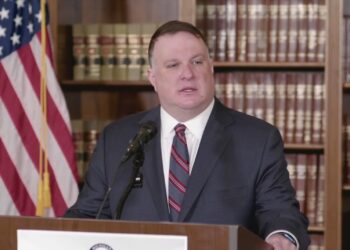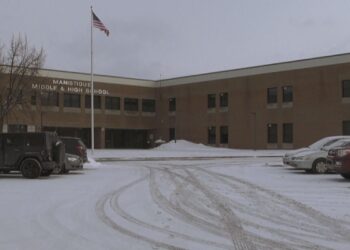LANSING, Mich. (WZMQ) – Governor Gretchen Whitmer has announced a partnership between the Michigan Department of Environment, Great Lakes, and Energy and the Michigan Economic Development Corporation.
Today’s announcement of the joint EGLE-MEDC state energy financing institutions program calls for large-scale clean energy technology projects that contribute to the state’s goal of reaching 100% carbon neutrality by 2050.
The Michigan Department of Environment, Great Lakes, and Energy (EGLE) and the Michigan Economic Development Corporation (MEDC) have been designated as State Energy Financing Institutions (SEFIs) by the U.S. Department of Energy’s (DOE) Loan Programs Office (LPO). The State of Michigan’s two SEFIs will offer grants for clean energy deployment projects that support the state’s MI Healthy Climate Plan via its two SEFIs in order to allow projects to leverage DOE LPO funding.
With their new SEFI status, EGLE and MEDC can unlock DOE LPO funding for projects that do not meet LPO’s “innovation requirement.” SEFIs must provide a meaningful contribution to these projects in order for them to access LPO loans and loan guarantees. In doing so, EGLE and MEDC seek to accelerate deployment of large-scale ($100 million +), commercially viable projects and technologies that will help the state achieve its carbon neutrality goals while also spurring economic development and high-quality jobs throughout the state.
https://www.michigan.gov/egle/about/organization/climate-and-energy/mi-healthy-climate-plan/funding/doe-lpo-sefi
Today, workshops introduced the new funding opportunities and also gave attendees a chance to learn about how to apply in a way that maximizes the money available to them.
Local leaders held a Q&A to help municipalities create the comprehensive plans needed to apply for Climate Pollution Reduction Grants, federal money for reducing greenhouse gas emissions and other harmful air pollution.
For the Bay Mills Indian Community, the state’s Inter-Tribal Council helped them make a Priority Climate Action Plan or PCAP. A document that uses community feedback to lay out what climate-related projects fit best, and would be the most helpful.
Jennifer Satchell, The Environmental Coordinator with Bay Mills Indian Community said they had been working on renewable projects related to electric vehicle chargers, and renewable energy in buildings, but didn’t have a list of priorities.
“They want to see that you kind of have a plan that you have a road forward so that these things will be implemented in a timely manner.” Satchell said. “It was kind of based on some shovel-ready projects that we had in the hopper that we want to implement to you know, just do our part to help with the climate crisis.”
It’s a format Michigan communities use to apply for state funding but is also used nationwide.
The PCAP helped organize waste and recycling studies, greenhouse gas inventories, and arrange forums. They’ve been able to apply for recycling infrastructure grants, and the new Climate Justice Community grant announced yesterday at the conference. Bay Mills has now entered the comprehensive planning phase and is seeking more feedback to complete its plan.










